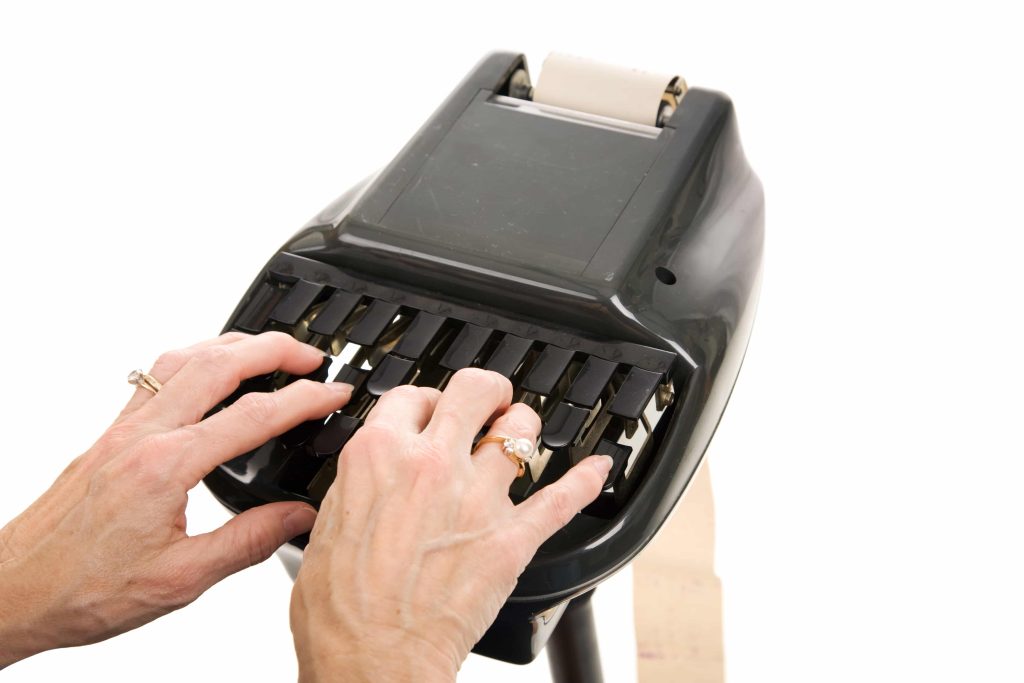Stenogrpahy & Stenographers Matter

Stenography is one of the most identifiable methods of recording the spoken word. Stenographers have been a familiar sight in courtrooms for the better part of the past centuries. Stenography, in short, is the act of recording spoken words through shorthand using a stenotype machine. Shorthand as a whole is not a new concept. Shorthand […]
Is There a Shortage of Qualified Stenographers

There seems to be a little issue happening in our courts. Court reporters are seeing a stenographer shortage coming in the very near future. So that does beg the question, is there a shortage of qualified Stenographers? We here at Courtscribes.com are here to find out. ‘People think this is an archaic profession. … it’s […]
